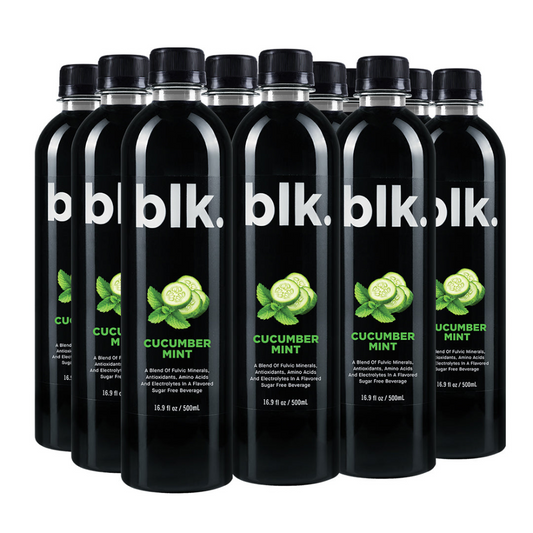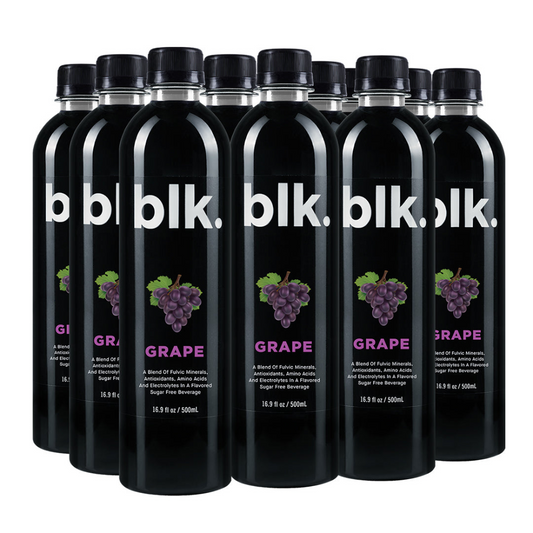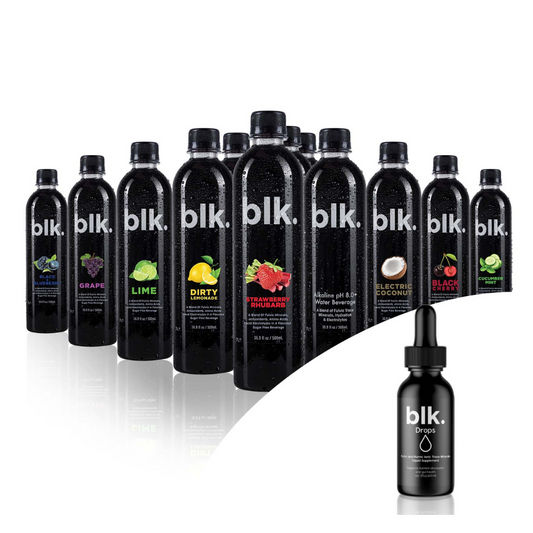
The Benefits of Beef Protein Powder for High-Intensity Workouts
This article seeks to give more information on:
- What is beef protein powder?
- How does it differ from other protein sources?
- How does beef protein powder help in high-intensity workouts?
- How should you take beef protein powder to maximize its benefits for high-intensity exercises?
Are you looking to improve your cardiovascular fitness, strength, and endurance with high-intensity workouts like CrossFit, sprinting, HIIT, weightlifting, or plyometrics? Do you want to push your limits, build muscle, increase strength and endurance, and improve your overall performance? If so, consider adding beef protein powder to your supplement regimen.
Beef protein powder has been gaining popularity among fitness enthusiasts and athletes because of some unique benefits that make it particularly helpful for high-intensity workouts. This article will look closely at beef protein powder and how it benefits high-intensity workouts. So, if you intend to take your fitness game to the level, keep reading to learn more about beef protein powder and how it benefits high-intensity workouts.
What is Beef Protein Powder?
Beef protein powder is an animal-based protein source, and as the name suggests, it is obtained from beef (cattle meat). The cuts from beef are boiled, and the resultant liquid undergoes skimming to eliminate fat. The remaining liquid is then dried to make beef protein powder.
Beef protein powder is a concentrated protein high in essential amino acids, especially branched-chain amino acids (BCAAs), which are necessary for building and repairing muscles. Some essential amino acids in beef protein include leucine, isoleucine, and valine.
Leucine is essential because it triggers muscle protein synthesis for building and repairing muscles. Isoleucine also plays a role in physiological functions such as protein metabolism and generally improved immunity. Valine helps maintain mental focus, boosts energy levels, and facilitates muscle coordination, which is vital for athletes and, generally, for high-intensity workouts.
There are different forms of beef protein depending on how it is processed. The least processed form is beef protein concentrate. The second form is beef protein isolate, which is further processed to concentrate the percentage of the protein further. The protein is isolated from other compounds to increase the protein content to about 90%. The final form is beef protein hydrolysate, which is made by heating the protein in proteolytic enzymes or acids to increase its bioavailability for easier digestion and absorption. This process breaks down the protein into smaller peptides and free amino acids, which are rapidly digested and absorbed.
What are the Differences Between Beef Protein Powder and Other Protein Sources?
With a wide array of protein powders, what makes beef protein the better option for high-intensity exercises? The answer lies in the sources from which the protein is derived. Let us have a look at the different protein sources.
Beef Protein and Plant-Based Protein
The advantage of beef protein powder over other plant-based proteins like peas, brown rice, and hemp is that beef protein is a complete protein source. A complete protein is a protein type with all of the essential amino acids the body requires. Plant-based sources are considered incomplete proteins because they do not have all the essential amino acids in low quantities.
Beef Protein and Other Animal-Based Protein Powders
Animal-based protein sources include whey, casein, and egg protein. Whey and casein are derived from cow's milk, while egg protein is obtained from egg white, also known as albumen.
A recent study by the Journal of Strength and Conditioning Research has indicated that whey and beef protein have similar effects on body composition and muscle performance. Nonetheless, beef protein is advantageous because, unlike whey protein, it does not contain lactose or gluten, which may effect digestive issues to people with sensitivities to such substances. The Food and Drug Administration (FDA) has also listed milk as the number one food allergen. The same applies to casein which is also a milk derivative. Casein has a slower digestion and absorption rate compared to beef protein which is not particularly helpful for people involved in high-intensity exercises.
What are the Benefits of Beef Protein Powder for High-Intensity Workouts?
- Faster recovery- Beef protein powder can speed up muscle recovery, reducing soreness and stiffness after workouts.
- Increased muscle growth- Beef protein powder is rich in amino acids like leucine that help in muscle growth, repair, and recovery. It is an excellent source of high-quality protein that can help to build and maintain muscle mass.
- Improved endurance- High-intensity workouts require a lot of energy, and beef protein powder can help increase endurance by providing the body with the necessary nutrients to sustain prolonged physical activities.
- Enhanced strength- Beef protein powder contains creatine, a natural compound that can increase strength and power for high-intensity workouts.
How Beef Protein Powder Can Improve Muscle Recovery
Recovering from high-intensity exercises is one of the essential aspects of athletic performance. During such exercises, the muscle fibers get damaged, making the muscles sore and difficult to continue with exercises or even other physical activities. Muscle recovery is the process whereby the damaged muscles are rebuilt and strengthened. The faster the recovery time, the better the performance.
The Effects of Beef Protein Powder on Muscle Recovery
Beef protein powder has been found to considerably improve recovery time. It facilitates faster muscle repair and reduces muscle soreness, keeping you going through high-intensity exercises. Here are some ways that beef protein powder can help improve muscle recovery.
High in Protein Content
Beef protein powder is an excellent protein source for repairing and building damaged muscle tissues. It has all the essential amino acids like leucine and isoleucine, which help trigger muscle protein synthesis that would help repair torn muscles.
Easily Digestible
Easy digestibility is a property that makes beef protein suitable for recovery because the protein and amino acids can be rapidly absorbed to help rebuild the damaged muscles. Other protein powders like casein take longer to digest, a property more suited for people intending to maintain weight. Hydrolyzed beef protein powder is suitable for high-intensity exercises because it is already broken down into smaller peptides and free amino acids that are rapidly digested and absorbed into the bloodstream.
Contains Collagen
Collagen is the most abundant protein in our body and is found in the muscles, bones, skin, and tendons. Beef protein powder also contains collagen, which is beneficial to joint health. It can help with inflammation and the growth of new cartilage, which support joint health.
High-intensity exercises may sometimes cause damage to cartilage and cause inflammation, a condition that may be alleviated by supplementation of collagen.
Supports General Immune Function
High-intensity exercises can temporarily weaken the immune system, making it more susceptible to illness and infections. Protein improves our immune system, and beef protein powder also contains a range of vitamins and minerals that can help to support immune function and protect against illnesses.
What are the best ways to use Beef Protein Powder for muscle recovery?
For optimum results for muscle recovery, beef protein powder can be taken as a post-workout supplement. This can be taken as protein shakes or together with your recovery meal.
Protein shakes are made by adding protein powder into water or milk, or you can add it to your favorite smoothie—there are plenty of ways to make protein shakes. A recovery meal is taken after workouts to help you recuperate from the effects of high-intensity exercises. As a recovery meal, you can add beef protein powder to your food to supplement your protein intake.
How Beef Protein Powder Can Enhance Muscle Growth
High-intensity exercises require large muscle mass to get the muscle strength to sustain the exercise. Beef protein powder has been proven to increase muscle mass by triggering muscle protein synthesis and muscle hypertrophy.
Muscle protein synthesis is the body's process of building new muscle tissues. It is a complex process that involves synthesizing new muscle proteins from amino acids, which are the building blocks of protein. Muscle hypertrophy is the process by which the size of muscle fibers increases in response to resistance training and adequate nutrition.
Effects of Beef Protein Powder on Muscle Growth
Supplementation of protein through beef protein powders has increased muscle growth for the following reasons.
It is rich in branched-chain amino acids (BCAAs)
Beef protein powder contains branched-chain amino acids (BCAAs), leucine, isoleucine, and valine. These amino acids are vital in triggering muscle protein synthesis, leading to increased muscle mass, which is essential for high-intensity exercises.
It support growth of muscle tissues
Anabolic is a term used to refer to the growth of muscle tissues, and Anabolic hormones are required for the growth and repair of muscle tissues in the body. This stimulate muscle protein synthesis, and beef protein supplementation is a good way of legally supporting the levels. Using other supplements for doping is banned by the World Anti-Doping Agency (WADA) in most sports in the United States, making beef protein powder an excellent alternative because it is not prohibited.
Best Ways to Use Beef Protein Powder for Muscle Growth
Beef protein powder can be taken as a pre-workout supplement, a protein shake, or as a muscle-building meal. In regard to the best time to take protein supplements, it is still a hotly debated issue, with some people preferring to take it pre-workout while others post-workout. Most fitness enthusiasts prefer taking it post-workout, within 15 minutes to an hour. This period is commonly known as the anabolic window and is the best time for protein uptake. According to The International Society of Sports Nutrition, the best time to take protein supplements for muscle growth is within two hours after exercise.
How Beef Protein Powder Can Improve Endurance
Muscle endurance is the ability of muscles to sustain and maintain repeated contractions over an extended period of time without experiencing fatigue or exhaustion. It is a vital aspect of high-intensity exercises and endurance training.
Effects of Beef Protein Powder on Endurance
Beef protein is crucial in improving endurance for high-intensity exercises. It improves endurance in the following ways.
Provides high-quality protein and branched-chain amino acids
High-intensity exercises place a lot of stress on muscles, which may cause damage to the muscle fibers. By providing adequate protein and all the essential amino acids, beef protein ensures that there is increased muscle mass and strength. This is because the protein and amino acids trigger muscle protein synthesis that builds and repairs the muscle damaged during exercises.
They also aid in muscle hypertrophy, increasing the muscle fibers' size, which helps preserve muscle integrity during high-intensity workouts.
Supplies creatine
Creatine is a naturally occurring substance synthesized by our body but is also found in diets, particularly red meat and fish. Beef is red meat and, therefore, a good source of creatine.
Creatine helps improve endurance. It is stored as phosphocreatine in the muscles that help produce Adenosine Triphosphate(ATP), which provides energy for our muscles. The creatine levels ensure more ATP production, providing more energy for sustaining high-intensity exercises.
Safety and Side Effects of Beef Protein Powder
Beef protein powder is an excellent option for supplementing protein and is generally considered safe when taken in moderation. However, some people may experience side effects. Below are some side effects that you should be aware of before taking beef protein powders.
Gastrointestinal Issues
Just like other protein supplements, beef protein powders may also effect digestive and gastrointestinal issues such as bloating, flatulence, and diarrhea. You should drink plenty of water and take smaller servings of beef protein powder to prevent recurring digestive issues.
Allergic Reactions
Some people may experience allergic reactions to beef protein powders because they are allergic to meat or other ingredients in the beef protein powder. The allergic reactions may cause skin rashes, swelling, and itchy skin. If you start experiencing such allergic reactions, discontinue use and seek medical advice.
Interactions with Medications
Beef protein powders may not go along well with certain medications like antibiotics. They may have adverse effects depending on the type of medication. Always consult your doctor before taking beef protein powders to determine whether they can be taken together with your medication.
For any dietary supplement, you should always take the recommended dosage and consult a qualified healthcare professional, especially if you have any underlying health conditions or are taking medications.
Conclusion
Beef protein powder can be a valuable addition for athletes and fitness enthusiasts looking to improve their performance and recovery during high-intensity workouts. With its high protein content, essential amino acids, and ability to support anabolic, beef protein powder can help to build and repair muscle tissue and increase muscle strength and endurance. Apart from taking beef protein powder, it is also crucial to maintain a healthy and balanced diet consisting of all essential nutrients. If you want to take your high-intensity workouts to the next level, try beef protein powder and witness its benefits for yourself.
Frequently Asked Questions
-
Can I use beef protein powder if I am on a low-carb diet?
-
How does beef protein powder compare to other protein powders in terms of taste?
-
Can beef protein powder help with weight loss?
-
How can I incorporate beef protein powder into my workout routine?
-
Is beef protein powder safe for pregnant or breastfeeding women?
-
Can I use beef protein powder with other supplements?
-
Can I use beef protein powder as a meal replacement?
-
Can I use beef protein powder if I am allergic to dairy or soy?




